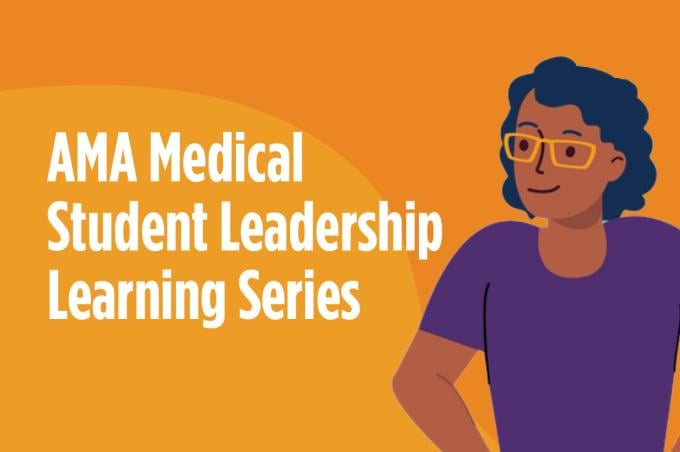There are many ways to measure the aptitude and readiness of aspiring physicians, but I’ve found that residents who have meaningfully engaged in advocacy and organized medicine as medical students are consistently some of the strongest in clinical decision-making, critical reasoning, adaptability, and in how they communicate with patients.
That’s why I often urge my colleagues who are tasked with evaluating residency applications to strongly consider the applicant’s experience in health care advocacy and leadership, and especially their involvement in the AMA or state medical associations and national specialty societies.
I say this as not only an practicing orthopaedic trauma surgeon and chair of the AMA Board of Trustees, but as a past residency program director, a professor and chair of a large multidisciplinary institute in Pennsylvania where I supervise more than 60 residents and fellows, in addition to nearly 200 physician and surgeon faculty and advanced practitioners.
Many medical students I speak to are surprised to learn about the influence their peers in medicine have on the AMA’s policy decisions inside our House of Delegates. About a thousand student leaders from across the country actively take part in the AMA’s biannual policymaking process, authoring some of the most impactful policies that lay the groundwork for AMA’s national advocacy, educational and public health initiatives. For example, the AMA Medical Student Section has been instrumental in shaping our organization’s policies to address medical student burnout and depression, advocate for LGBTQ+ health, and improve undergraduate and graduate medical education and training.
I was an active member of the AMA while in medical school and am proud to have served as the first medical student directly elected to the AMA Board of Trustees several decades ago. My experience as a student leader was essential in shaping the physician I would one day become and in providing me with the necessary skills to propel my career in organized and academic medicine.
Develop a systematic approach
Among the skills I developed as an active student leader that helped set me apart from my peers was an ability to perform critical analysis of clinical and social issues. When medical students are active in organized medicine, they are trained to identify problems they observe in the clinical environment, research the root causes, analyze the quality and value of data from multiple sources and perspectives, and develop evidence-based solutions that consider advantages, disadvantages and unintended consequences. All physicians benefit from a nuanced understanding of how to systematically and effectively improve health care and population health.
Another critical skill honed through medical student advocacy is collaborative communication within the House of Medicine. Students build coalitions with physicians from all experience levels, specialties and states, balancing vastly different perspectives and beliefs, and finding consensus on often controversial challenges in health care. Students also learn how to translate complex clinical concepts to the real world through meetings and correspondence with policymakers to influence legislation and regulation.
Finally, medical student leaders at the AMA or in their state or specialty societies are adept at leadership and management responsibilities. They get substantial practice managing large teams, delegating responsibilities, and ensuring efficient completion of complicated projects with multiple tasks. This prepares them exceptionally well for the challenging and busy clinical environment of residency and practice as attendings.
I have long believed—based on my own experiences and observations—that the diligence and resilience of medical student leaders in state and national medical organizations directly translates to success in residency and provides a foundation for future leadership roles in clinical, academic and administrative settings. I strongly believe that medical institutions can reap the benefits of these future physician leaders as they make the next critical step in their journey.
It's no secret that physicians today face enormous challenges in creating a more sustainable, equitable and effective health care system that better supports the needs of patients, doctors and all health care workers. Medical students active within our AMA have a head start in this work, and have developed essential skills to help them, their colleagues and their patients, more confidently navigate the complexities of modern medicine.
I am always proud to have trainees on my team who have a wider and more sophisticated view of the challenges in medicine today thanks to their experience within organized medicine. These talented residents care deeply and holistically about their patients and often take the initiative to make our entire institution stronger.
And so, to my colleagues who are currently reviewing residency applications, please consider a student’s experience in organized medicine as a marker of the strongest possible candidate who also happens to be a future leader of our profession.




